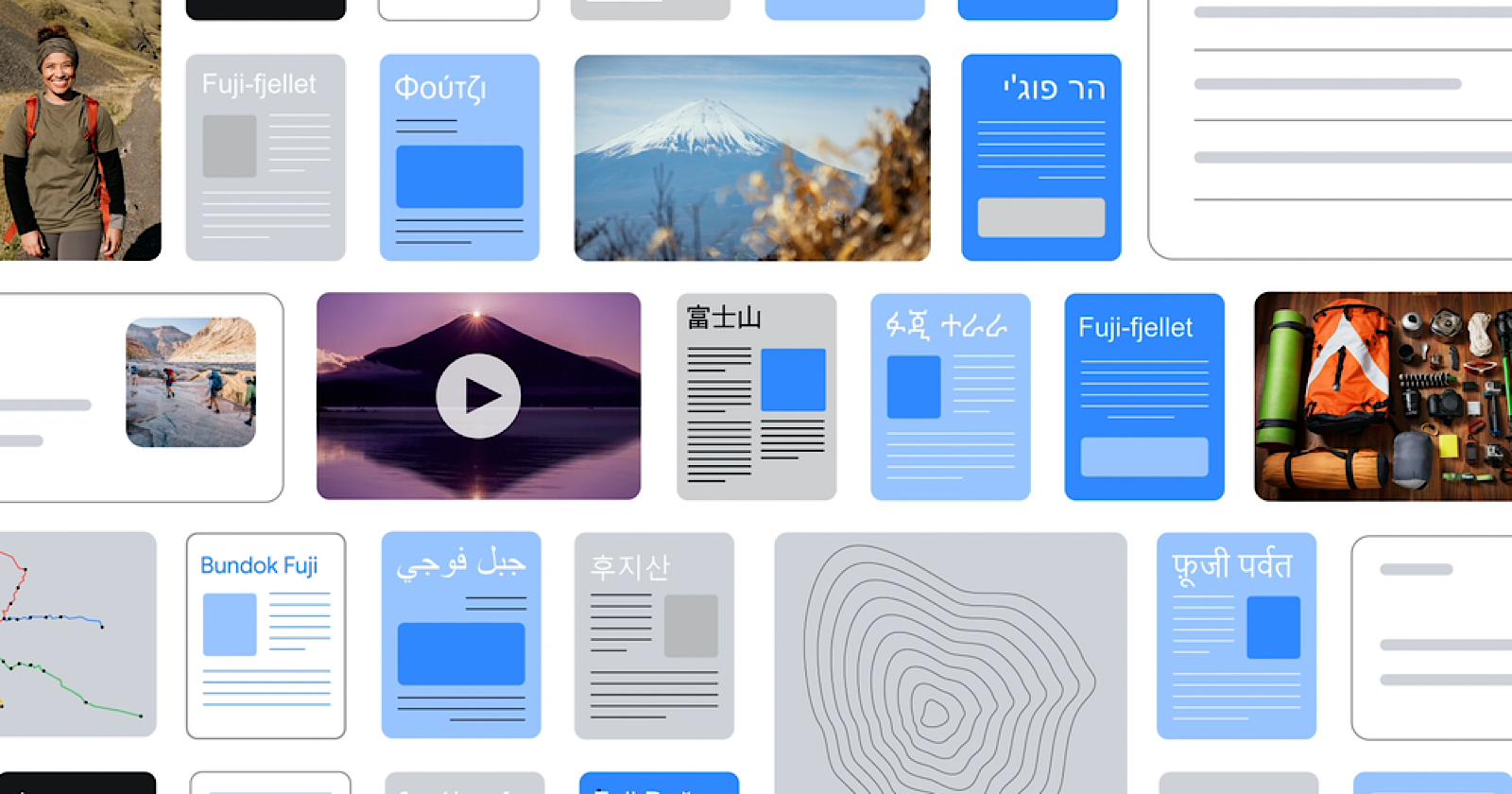
Google aims to answer more complex search queries with a new technology called Multitask Unified Model, or “MUM” for short.
Google revealed at its I/O conference on Tuesday that it’s in the process of exploring how MUM can be used to better understand language and deliver helpful responses.
MUM isn’t live yet, but Google gave a rare look into how it’s being developed. Here are the highlights from Google’s announcement.
Google MUM Helps Get Things Done
Google’s goal with MUM is to help users get things done with fewer searches.
On average, Google finds it take people eight searches to complete complex tasks.
Google envisions a future where MUM can generate a response to complex questions like: “I’ve hiked Mt. Adams and now want to hike Mt. Fuji next fall, what should I do differently to prepare?”
As it stands today, users would have to search for different pieces of information to answer that question, such as the elevation of each mountain, the average temperature in the fall, difficulty of the hiking trails, the right gear to use, and more.
Google compares the answer MUM would be able to deliver to the response a hiking expert would give the same question.
MUM could understand the user is comparing two mountains, which indicates elevation and trail information may be relevant. It could then understand that to “prepare” may include activities like fitness training and finding the right gear.
In addition, MUM can surface insights based on a deep knowledge of the world, meaning it could point out information like fall is the rainy season on Mt. Fuji so the user might need a waterproof jacket.
MUM is capable of surfacing helpful subtopics for deeper exploration, like the top-rated gear or best training exercises. Search results would direct the user to helpful articles, videos and images from across the web.
“Today’s search engines aren’t quite sophisticated enough to answer the way an expert would. But with a new technology called Multitask Unified Model, or MUM, we’re getting closer to helping you with these types of complex needs. So in the future, you’ll need fewer searches to get things done.”
Related: Google Research Paper Reveals a Shortcoming in Search
The Technology Behind MUM
Similar to BERT, MUM is built on a Transformer architecture, but it’s said to be 1,000 times more powerful with the ability to multitask to unlock information in new ways.
Google says MUM is able to understand information across different languages and formats to deliver the most complete results to users.
“MUM not only understands language, but also generates it. It’s trained across 75 different languages and many different tasks at once, allowing it to develop a more comprehensive understanding of information and world knowledge than previous models.
And MUM is multimodal, so it understands information across text and images and in the future, can expand to more modalities like video and audio.”
Google has started internal pilot testing of MUM and promises to apply this advanced AI to search results in a responsible manner.
MUM will undergo the same rigorous testing as every update to Google Search before it goes live. The company says it will pay specific attention to patterns that indicate bias in machine learning.
Look for MUM-powered features and improvements coming to Google products in the coming months and years.
Sources: Google






